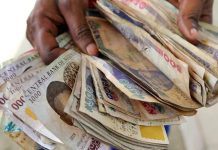Today, the Nigeria Debt Management Office (DMO) intends to sell FGN bonds on the capital market in order to raise N2.5 trillion. The results of this month’s FGN bond auction, according to analysts, should have an impact on the secondary market’s yield trajectory.
The DMO will be putting up instruments valued at N2.50 trillion through fresh bonds, the FGN FEB 2034 (10-year) and FGN FEB 2031 (7-year) bonds, during the auction. Analysts predict strong demand based on the current outlook for the fixed income market.
Their hopes were based on spot rates repricing after the previous auction, when the top bank set 19% rates on 364-day Treasury Bills. Liquidity will influence the subscription level at today’s auction to some degree.
On Friday, the money markets’ short-term benchmark interest rates decline due to robust liquidity in the financial system. According to data from the FMDQ platform, the overnight lending rate contracted by 7 basis points to 16.9%.
Analysts said the financial system has remained buoyant from the previous week, further supported by N40 billion inflows from OMO bill maturities. Though the market recorded debits for CRR maintenance.
Accordingly, the average system liquidity this week settled higher at a net long position of NGN302.20 billion from a net long position of N242.23 billion, according to Cordros Capital Limited.
In the secondary market, bearish sentiments persisted on FGN Bonds as the average yield increased by 63 basis points to close last week at 16.1%. Local investors exit their fixed interest securities assets positions ahead of the February 2024 bonds auction and the underwhelming inflation rate record released by the NBS on Thursday.
Across the benchmark curve, Cordros Capital Limited told investors in an update that the average yield expanded at the short (+86bps), mid (+69bps) and long (+66bps) segments. The yield surge followed sell-offs of the JAN-2026 (+257bps), JUN-2033 (+125bps) and APR-2049 (+187bps) bonds, respectively.












